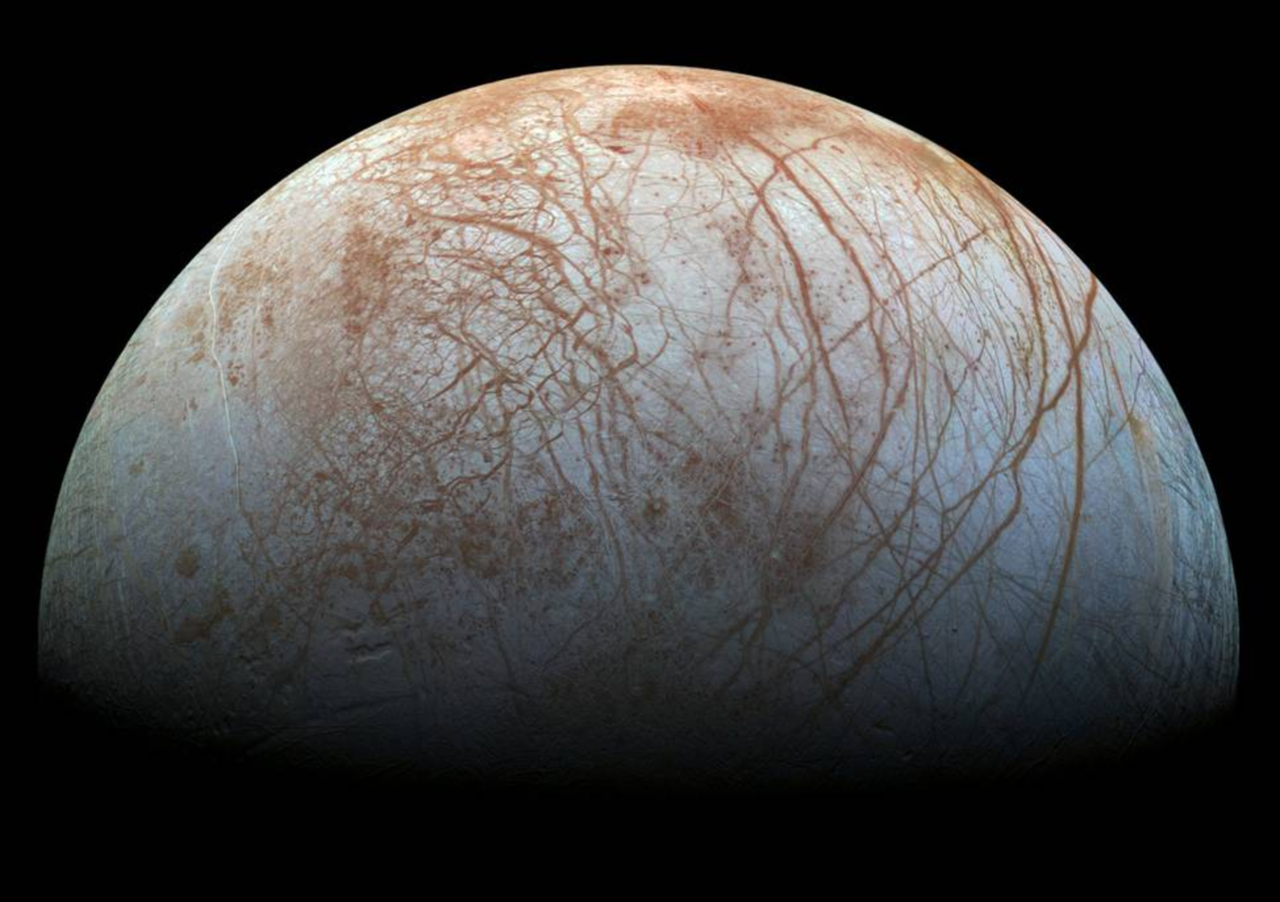News | May 11, 2018
NASA Hosts Live Discussion about Europa Findings, Potential for Life

A view of Europa created from images taken by NASA's Galileo spacecraft in the late 1990s. Credits: NASA/JPL-Caltech/SETI Institute
NASA will host a Science Chat at 10 a.m. PDT (1 p.m. EDT Monday, May 14), to discuss the latest analysis of Jupiter’s moon Europa and its status as one of the most promising places in the solar system to search for life. The event will air live on NASA Television, Facebook Live, Twitch TV, Ustream, YouTube, Twitter/Periscope and the agency's website.
Europa has long been a high priority for exploration because beneath its icy crust lies a salty, liquid water ocean. NASA’s Europa Clipper, targeted to launch in 2022, will be equipped with the instruments necessary to determine whether Europa possesses the ingredients necessary to support life as we know it.
Lori Glaze, acting director of NASA’s Planetary Science Division, and JoAnna Wendel, the division’s communications lead, will host the chat. Guests include:
- Xianzhe Jia, associate professor in the Department of Climate and Space Sciences and Engineering at the University of Michigan, Ann Arbor
- Elizabeth Turtle, research scientist at Johns Hopkins Applied Physics Laboratory in Laurel, Maryland
- Margaret Kivelson, professor emerita of Space Physics in the Department of Earth and Space Sciences at the University of California, Los Angeles
The public can send questions on social media by using #AskNASA at any time during the event.
For more information about Europa Clipper, visit:
For information about NASA’s missions, programs and activities, visit:
Dwayne Brown / JoAnna Wendel
NASA Headquarters, Washington
202-358-1726 / 358-1003
dwayne.c.brown@nasa.gov / joanna.r.wendel@nasa.gov
Gretchen McCartney
Jet Propulsion Laboratory, Pasadena, Calif.
818-393-6215
Gretchen.p.mccartney@jpl.nasa.gov


